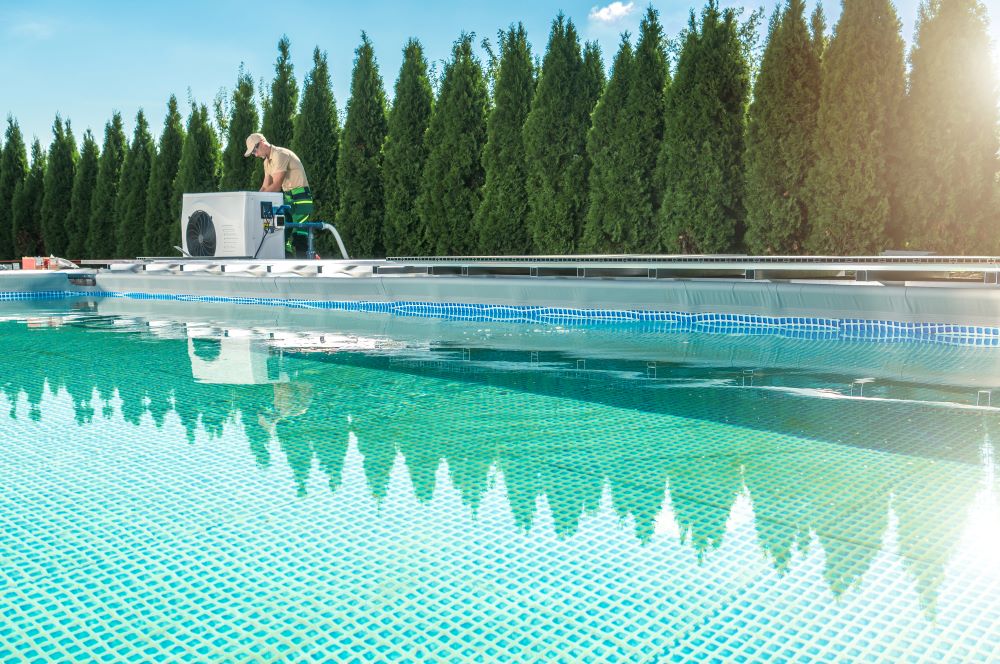Welcome to our guide on pool heaters and their lifespan. Pool heaters are essential for maintaining the ideal water temperature in your pool throughout the swimming season. However, like any other mechanical equipment, pool heaters also have a finite lifespan. In this article, we will delve into the factors that influence the longevity of pool heaters and provide tips on how to extend their lifespan.
Factors Affecting the Lifespan of Pool Heaters
Several factors can impact the lifespan of pool heaters. Understanding these factors can help you make informed decisions when it comes to purchasing, maintaining, and replacing your pool heater. Let’s explore some of the key factors:
1. Type Of Pool Heater
The type of pool heater you have installed plays a significant role in determining its lifespan. There are three main types of pool heaters: gas, electric, and solar. Gas pool heaters typically have a lifespan of 5-10 years, while electric heaters can last 10-20 years. Solar pool heaters have the longest lifespan, often exceeding 20 years.
2. Usage And Maintenance
Regular maintenance and proper usage can significantly extend the lifespan of your pool heater. Routine maintenance, such as cleaning the filter, checking for leaks, and ensuring proper ventilation, can prevent premature wear and tear. Additionally, using the heater within its recommended capacity and not overworking it can help prolong its lifespan.
3. Climate And Environmental Factors
The climate and environmental conditions in which your pool heater operates can impact its longevity. Extreme temperatures, exposure to sunlight, high humidity, and corrosive elements can accelerate wear and reduce the lifespan of the heater. Proper insulation and protection from the elements can help mitigate these effects.
Extending the Lifespan of Your Pool Heater
While the lifespan of pool heaters varies depending on the factors mentioned above, there are several steps you can take to maximize the longevity of your pool heater. Here are some tips to help you extend the lifespan of your pool heater:
Maintain Regular Maintenance
Regular maintenance is crucial for keeping your pool heater in top condition. Schedule routine inspections, clean the filter, check for leaks, and ensure proper ventilation to prevent unnecessary strain on the heater.
Monitor Usage
Avoid overworking your pool heater by using it within its recommended capacity. Monitor its usage and avoid running it for extended periods when not necessary. This can help prevent premature wear and extend its lifespan.
Protect From Environmental Elements
Shield your pool heater from harsh environmental conditions such as extreme temperatures, sunlight, and humidity. Proper insulation and placement can protect the heater from damage and prolong its lifespan.
Invest In Quality Equipment
When purchasing a pool heater, opt for high-quality equipment from reputable brands. Quality heaters are built to last longer and are less prone to malfunctions and breakdowns, saving you money in the long run.

Credit: www.calmwaterspoolservices.com
When to Replace Your Pool Heater
Despite proper maintenance and care, there will come a time when you need to replace your pool heater. Here are some signs that indicate it may be time for a replacement:
- Decreased heating efficiency
- Frequent breakdowns and repairs
- Visible signs of corrosion or rust
- Strange noises or odors during operation
- Age exceeding the expected lifespan
If you notice any of these signs, it may be more cost-effective to invest in a new pool heater rather than continuing to repair an old and inefficient one.

Credit: www.celestialsolar.com
Conclusion
In conclusion, the lifespan of pool heaters varies depending on several factors, including the type of heater, maintenance, climate, and environmental conditions. By following proper maintenance practices, monitoring usage, protecting the heater from environmental elements, and investing in quality equipment, you can extend the lifespan of your pool heater and ensure optimal performance for years to come.
Remember to keep an eye out for signs of wear and tear and be prepared to replace your pool heater when necessary to avoid costly repairs and inefficiencies. By taking proactive steps to care for your pool heater, you can enjoy a comfortable and inviting swimming experience throughout the seasons.



